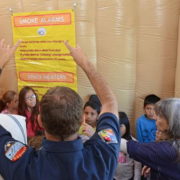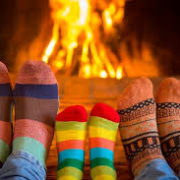Freeze Winter House Fires with Fire Education and Preparation
Did you know that house fires peak during winter, specifically during December and January? Keep your house, and most importantly family, safe during the cold months with fire education and preparation.
Prevent with Fire Education and Preparation
The lead cause of house fires in the United States is heating, more specifically space heaters that are left unattended. These types of fires peak during December, January, and February. House fires caused by candles also peak during December and January. The best way to prevent house fires and injuries, or even deaths, by fire are by preparing your home and educating your family on what to do if there was a fire in your house.
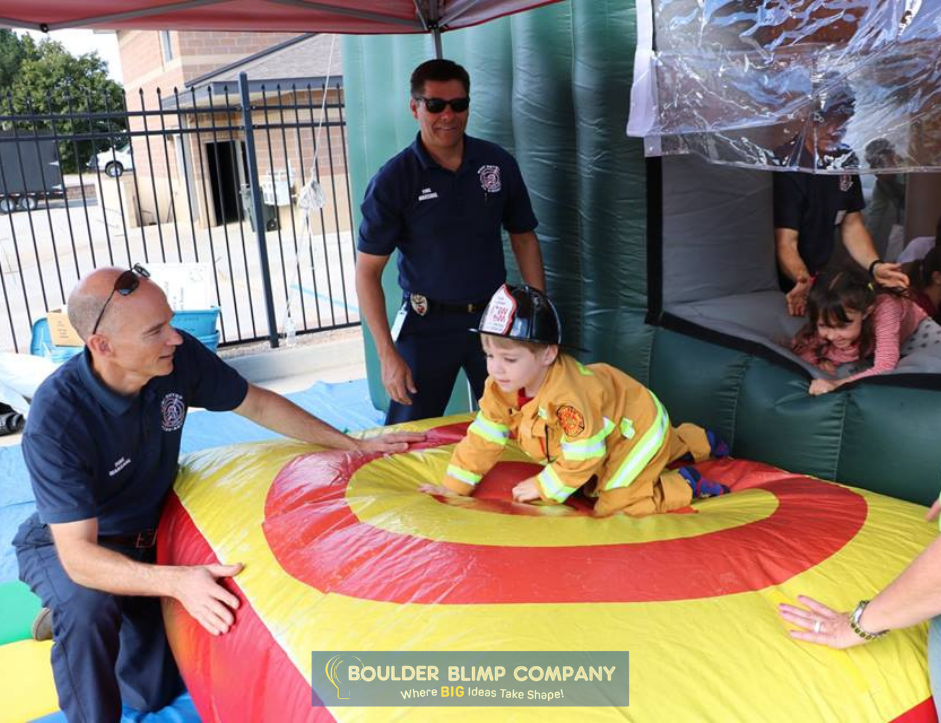
Prepare Your Home to Avoid Winter House Fires
The best way to prevent winter house fires are to prepare your home to both avoid a fire and to be prepared in case of a fire. As mentioned before, the top causes of house fires are heating sources, such as space heaters, and candles. Below are some ways that you can prepare your home to diminish the risk of winter house fires.
First, never use your stove or oven to heat your house. You can learn more about why in this article about the dangers of using your stove for home heating but the main thing is that your stove or oven was never designed to do this and doing so is a fire hazard.
Second, never leave an open flame or heating source, such as a space heater, unattended. Space heaters are great for heating up a small space however, they can overheat or come into contact with flammable materials and start a fire. It is also suggested that you never sleep with your space heater on as that is similar to leaving it unattended and is a fire hazard.
To piggyback off of never leaving a heating source or open flame unattended, make sure that you keep anything that can burn at least 3 feet away from any heating equipment. This includes your oven, space heater, and candles. Leaving flammable things in close vicinity to an open flame or active heating source is a fire hazard and can be extremely dangerous.
If you follow the above guidelines your risk of a winter house fire should be low however, house fires can still happen. In the case of a fire, it is imperative that you have active and working smoke alarms that will go off to alert you and your household about any potential fire and smoke. This means that you should have smoke alarms on every level of your house, if not every room, and that you should replace the batteries at least every 10 years!
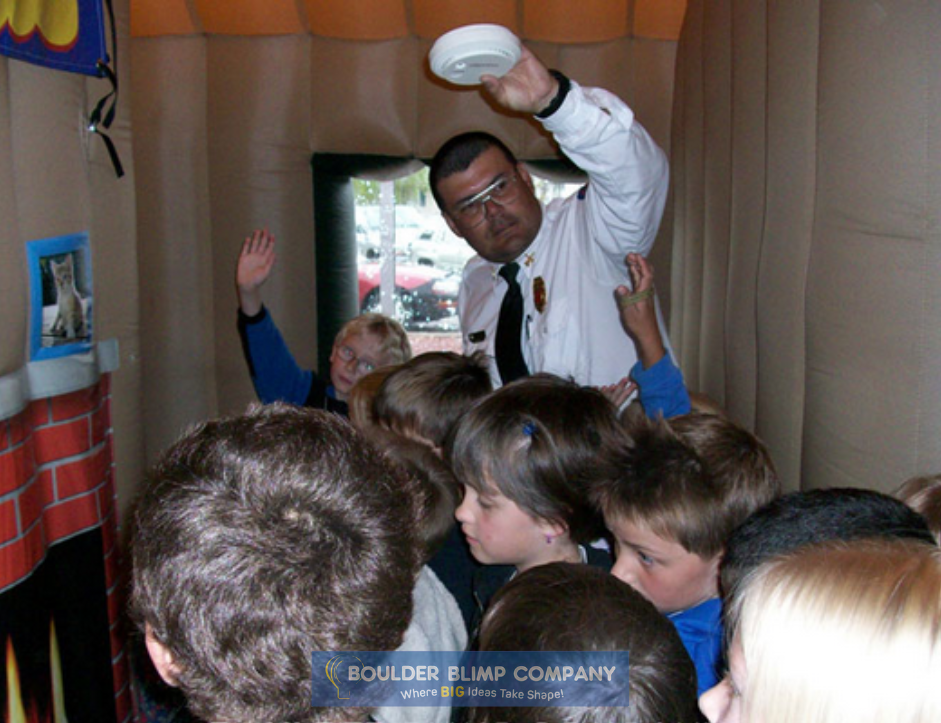
In Case of a Fire Prepare with Fire Education
In addition to preparing your house and taking the necessary steps to avoid house fires, it is imperative that you prepare your household and family with fire education so that know exactly what to do if there ever is a fire inside your home.
One way to do this is by letting them know about the rules of open flames and heating sources that were discussed above. This way everyone is educated on the necessary steps that need to be taken in order to reduce the risk of a house fire.
Another way to prepare your household and family for a potential house fire is by showing them what to do if a fire was ever to break out inside your home. Our team has written a whole blog breaking down what should be done to stay safe during a house fire. Our inflatable fire education houses are also a great and fun way to provide fire education! They are customizable and can be used throughout the community to spread fire education.
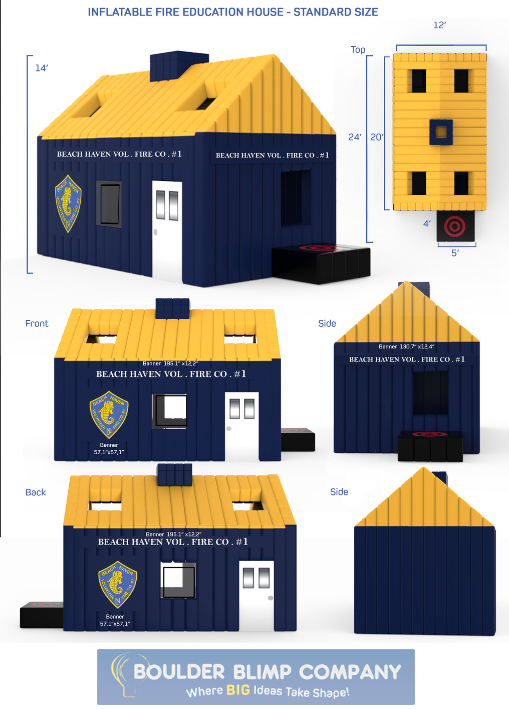
Our inflatable fire education houses inflate within minutes. They are designed to showcase a full kitchen with informational banners throughout to educate people about fire safety. Learn more about our inflatable fire education houses on our website. Email us at fireeducation@boulderblimp.com to get started on your inflatable fire education house today!




